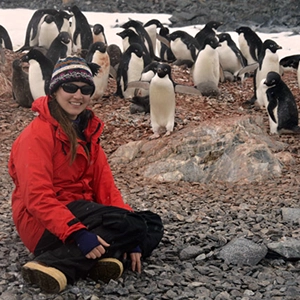
Downloads
Research Interests
Broadly, I am interested in coastal marine ecosystems, with a particular interest in how the chemistry and biology of these environments are interrelated. A main driver of my research interests is how humans are connected to, impact, and depend on the oceans. I am interested in research that focuses for example on climate change, ecosystem health of important resources, and eutrophication. Currently, my research focuses on phytoplankton ecology along the Western Antarctic Peninsula, one of the most rapidly warming places on Earth. I am also a part of the Center of Ocean Observing Leadership (COOL), where I help deploy our fleet of gliders (autonomous underwater vehicles). Outside of research, I’m also very interested in education and outreach. I think it is so important to involve non-scientists in the work we do to not only share why it is important and matters to them but to get them interested and excited about the oceans in general. Whenever I can, I love to help out our outreach team when opportunities arise.
Short History
I’ve always loved the ocean and have been studying oceanography since high school, where I competed in the National Ocean Sciences Bowl. I received my Bachelor’s degree from the University of New England, with a major in Marine Biology and a minor in Chemistry. After that, I spent a year working in a marine benthic ecology lab at the Dauphin Island Sea Lab, Alabama with Dr. Ken Heck. My research there focused on near-shore oyster reefs and seagrasses. I completed my Master’s degree in Oceanography at Rutgers with Dr. Silke Severmann. My thesis research focused on how sedimentary sulfide and iron is impacted by eutrophication and how that in turn affects seagrass health. Upon completion of my Master’s degree, I remained working in coastal ecosystems, but I made a big jump from the coasts of New Jersey to the coasts of Antarctica and began working as a Lab Researcher for Dr. Oscar Schofield and the COOL group.
